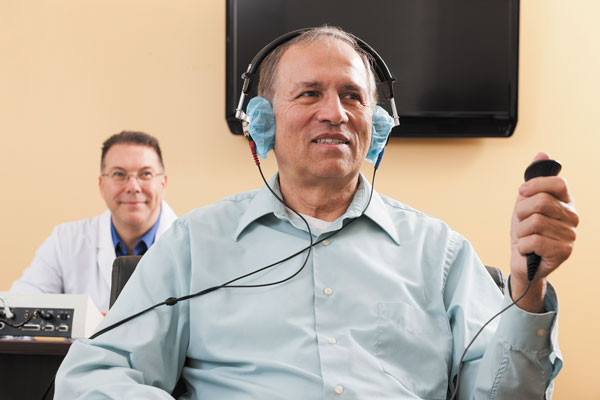Men's Health Archive
Articles
Looking for a few good men
There are many opportunities to join a clinical trial, and you may be surprised at what you can learn about your health.
Image: ggustavofrazao/Thinkstock
You no doubt have seen advertisements asking people to join a clinical trial and thought they don't apply to you. But perhaps you should reconsider.
"People have a vested interest in the outcome of research trials, since these studies address many issues they want to avoid or better manage, such as cancer, diabetes, blood pressure, and dementia," says Dr. Howard Sesso, an epidemiologist with the division of preventive medicine at Harvard-affiliated Brigham and Women's Hospital.
Shortened radiation therapy may help with low-risk prostate cancer
A new study found that men with low-risk prostate cancer may be able to undergo a shortened course of radiation therapy that cuts treatment by weeks and offers similar outcomes and quality-of-life results as longer treatment courses.
Drugs to prevent heart attacks may also lessen their severity
Medications such as aspirin, statins, ACE inhibitors, and beta blockers are prescribed to certain patients to lower the chance of a first or repeat heart attack. New research shows that they also may reduce the severity of attacks that do occur.
Now hear this: You may need hearing aids
These tiny devices can improve your communication, your relationships, and even your brain function, but only if you use them.
Image: Huntstock/Thinkstock
Age-related hearing loss affects about a quarter of people ages 65 to 74 and half of those ages 75 and older, according to the National Institute on Deafness and Other Communication Disorders. Over all, though, it tends to be more male-oriented.
“By middle age, many men also have hearing nerve damage from long exposure to noises like power tools, music, and guns,” says Dr. Steven Rauch, an otologist with Harvard-affiliated Massachusetts Eye and Ear. Some career choices—like construction, manufacturing, or military service—also contribute.
Women now drink almost as much as men, according to global survey
Alcohol consumption, problem drinking, and alcohol-related health problems are almost as high among women as among men born in the late 1990s.
Immediate radiation when PSA levels spike after prostate cancer surgery helps reduce risk of recurrence
After prostate cancer surgery, the patient’s prostate-specific antigen (PSA) is monitored by his doctor via a simple blood test. New research indicates that if the PSA increases following surgery, immediate radiation therapy can reduce the risk of cancer recurrence.
New study recommends immediate radiation when PSA Levels spike after prostate cancer surgery
Following surgery to remove a cancerous prostate gland, some men experience a biochemical recurrence, meaning that prostate-specific antigen (PSA) has become detectable in their blood. Since only the prostate releases PSA, removing the gland should drop this protein to undetectable levels in the body. Detecting PSA could signify that prostate cancer cells are lingering, and […]

Respiratory health harms often follow flooding: Taking these steps can help

Tips to leverage neuroplasticity to maintain cognitive fitness as you age

Can white noise really help you sleep better?

Celiac disease: Exploring four myths

What is prostatitis and how is it treated?

What is Cushing syndrome?

Exercises to relieve joint pain

Think your child has ADHD? What your pediatrician can do

Foam roller: Could you benefit from this massage tool?

Stepping up activity if winter slowed you down
Free Healthbeat Signup
Get the latest in health news delivered to your inbox!
Sign Up







